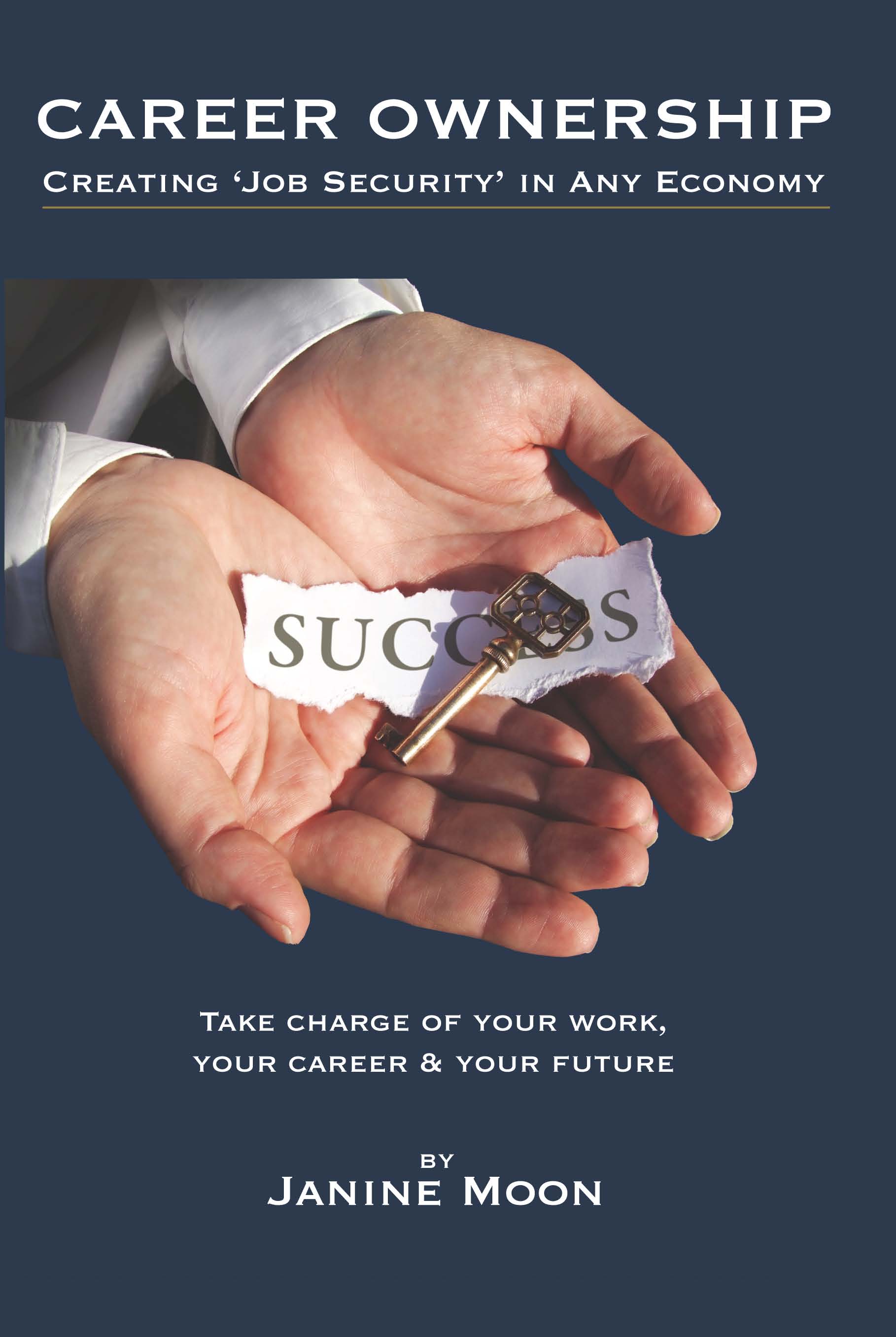As the economy has moved from Industrial-base to an information/conceptual/ service-base, the concept of “career” has not shifted to align with the realities of a very different business model. Although gold watches and retirement parties are almost non-existent, people still look to organizations for the security and the career model of the 20th century. (As evidence, consider the numbers of people who see their downsizing from a victim mentality.) People still expect that their organization (manager) will define their deficiencies, pay for their training and education and put them on a career path that proves their worth. Few, if any, within an organization would ever claim ownership of their career. Career ownership has always been the bailiwick of entrepreneurs.

Why now?
Today’s successful business models require partnership from everyone in an organization. Anything less is inviting disaster; today’s economic environment only rewards those who are agile and able to turn on the proverbial dime. The industrial era model, defined by multiple decision-makers and one-size-fits-all customer service, expected and shaped robot-like behavior in the form of highly-defined job-boxes, multiple levels of supervision and repetitive work tasks. Today’s business models require very opposite behavior from workers: flexibility, initiative, connection with customers, collaboration and innovative thinking—those things that stem from partner-owners who are engaged and aligned with the organization’s mission.
A new and vital model
Another model of career management is needed to develop partner-owners, career owners, because the current model is dependent upon the traditional, broadly-accepted characteristics of “employer” and “employee.” Employers provide jobs, provide training, provide pay for work, censure and reward as they choose, often without contract or “at will.” Employees accept the unwritten rules and beliefs that accompany a paternalistic system, and see the employer as economic security. Wanting to believe in the security of the late 20th century, sheltered from current business reality, and unaware of how to move beyond their assigned role, many employees sit and wait to be picked: for advancement, for a career direction, for training and development, for work that increases productivity or customer satisfaction. They are passive stakeholders whose strengths are wasted as managers rearrange the deck chairs.
Yet another group of employees, those of generational values that embrace technology, change, flexibility and innovation are not a fit within the traditional employee role and yet they recognize their value in the current marketplace. They are not inclined to pay dues in hopes of a career path that aligns with their values. They are eager to follow their own path, moving until they find satisfying work that allows for continual growth and development but that makes marked contributions to a greater good. Often perceived as fickle and immature, these workers are ready for a career model that acknowledges the value of both partners.
Career owners show up as involved stakeholders and take responsibility for aligning their talents with the organization’s mission and direction. They are actively engaged in the work and consistently looking for ways to beat expectations, increase profit margins and tend to the long-term viability of the organization. While not capital investors, career owners recognize the significance of their sweat equity, and actively partner in the organization’s success.
Career ownership guarantees productivity
Partner-owners are hard-to-find in today’s organizations. The Gallup Organization, over the last 15+ years has measured employee engagement across industries, work functions, and organization size and employee demographics. Their surveys consistently show a U. S. workforce engagement level of less than 30%. This means that over 70% of the workforce is not engaged or is actively disengaged: the former are “seat warmers” and the latter are “seat burners.” This is a tragedy for any business, but especially in a fast-paced global economy that demands more and better from all stakeholders. It’s particularly disastrous in the current unsettling economy as organizations cut their workforces and re-distribute the work to the survivors…survivors whose fear and gloom increases in proportion to their workload.
Gallup estimates that U.S. businesses accumulate over $375 billion annually in lost productivity from unengaged workers. On the positive side, Gallup also provides extensive business metrics that prove the significant impact of employee commitment on revenues, sales, profit margins, associate turnover and any other business measure that matters. Career owners are committed to their work—they ‘get’ what’s in it for them and care about staying-the-course.
Both managers and individual contributors in today’s economy are continuing to be pushed to do more with less, often through drastic reductions in employees and reorganization efforts. Managers take on additional responsibilities as hierarchies flatten, producing more paper and juggling more people, leaving less time and inclination to have any kind of employee discussion let alone a career discussion. Training in “how to manage” has become a victim of expense cuts, leaving many managers uncomfortable or unknowing on how to hold a career conversation. Yet individual contributors, even the survivors, are the very ones whose passion and engagement will create the organization’s success.
A partnering of individuals with the organization and the resulting benefits for both provides the very motivation and support needed to accomplish great things in tough times.
Benefits to the organization
Career Ownership is a program that shows people how to take responsibility for their own careers inside an organization, increase their engagement and contribution, and carve a career path that satisfies both individual development and an organization’s shifting human capital needs. The benefits to an organization that develops a career ownership culture are many and include:
1. associates who take responsibility for defining growth opportunities and career direction that align with the organization’s strategic goals;
2. ability to attract and retain talent that is aligned with and suited to the organization’s purpose and direction;
3. reduction in the high costs of turnover;
4. clear impact on business metrics from the emotional connection that motivates associates to provide discretionary effort and an ownership mindset that drives for success;
5. managers as career advocates who support and retain talent;
6. a defined and secure the pool of talent available for leadership openings;
7. alignment of the employment relationship with the realities of a globally competitive world;
8. identification of the organization’s ‘elite’ and focused development resources that provide significant ROI for the present and future.
Benefits to an individual
The benefits to an individual who takes responsibility for his/her own career (inside or outside an organization) include:
1. attention to consistent and sure alignment with the organization’s mission;
2. security of ownership and a true career direction;
3. increase in individual value that as alignment and contribution to the organization increases;
4. clarity of personal foundation and its alignment with work and work environments;
5. clarity of decisions based upon foundational benchmarks;
6. ability to define “success” as it aligns with one’s foundation;
7. partnership and recognized contributions to the organization’s success;
8. greatly reduced stress around job security and political machination;
9. increased confidence and self-efficacy;
10. increased work satisfaction, from a strong understanding of your work’s contribution and value as well as ongoing growth plans.





[…] Career Ownership: The Program & Its Benefits […]
There is definately a great deal to find
out about this issue. I love all the points you’ve made.